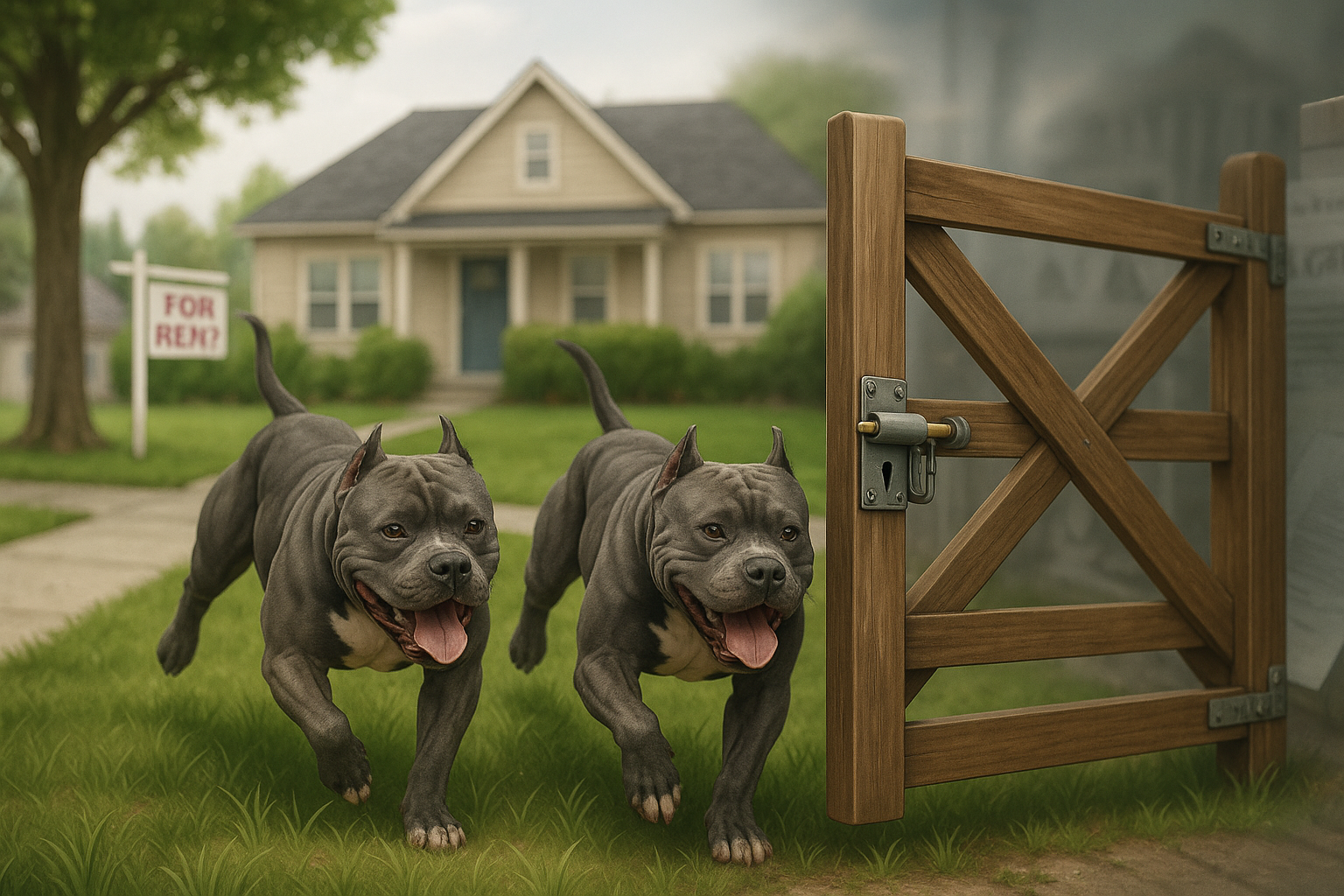A Lease with No Dogs Allowed
In the state of California, two landlords, Ali Farvid and Lilyana Amezcua, rented a home to a tenant named Hebe Crocker. The lease agreement clearly stated “no dogs allowed.”
However, Crocker violated the rule and kept two pit bulls on the property.
The Attack
One day, the two pit bulls escaped through an unlatched gate and ran into the street. They attacked Joni Fraser, a passerby who later became the plaintiff in the case.
The Lawsuit
Fraser filed a lawsuit against the landlords, arguing they should be held responsible for the injuries she suffered.
The legal question became:
Did the landlords know the dogs were dangerous before the attack?
Evidence Presented
During the trial, a neighbor named Leigh Ramos-Platt testified that she had sent an email to the landlords a few months earlier, mentioning there were “two guard dogs” living at the property.
The court had to decide whether this was enough to prove the landlords had “actual knowledge” of the dogs’ dangerous nature.
The First Verdict
The first jury decided that the landlords were liable for the attack.
But Ali Farvid and Lilyana Amezcua disagreed with that decision and filed for further review.
The JNOV Motion
The landlords asked the court for a Judgment Notwithstanding the Verdict (JNOV) — a special ruling that allows a judge to overturn a jury’s decision if the evidence is not sufficient.
After reviewing the case, the court found that the neighbor’s email only mentioned “guard dogs.”
It did not describe them as dangerous, vicious, or aggressive.
The Final Decision
The court ruled that the landlords did not have “actual knowledge” of the dogs’ dangerous behavior before the attack.
The judge affirmed the JNOV, which meant the landlords were not held responsible.
Legal Lesson
This case established an important rule in California law:
A landlord can only be held liable for a tenant’s dog attack if they had actual knowledge that the dog was dangerous before the incident occurred.
